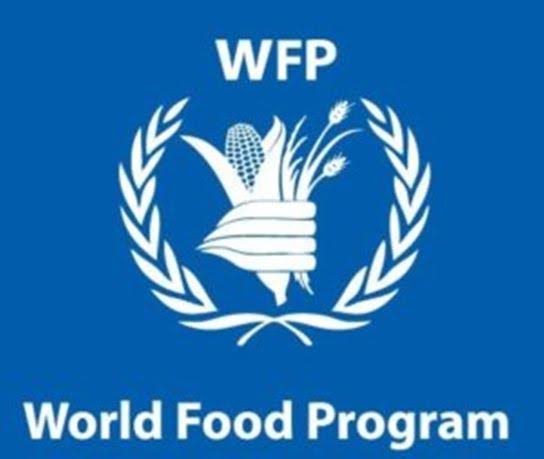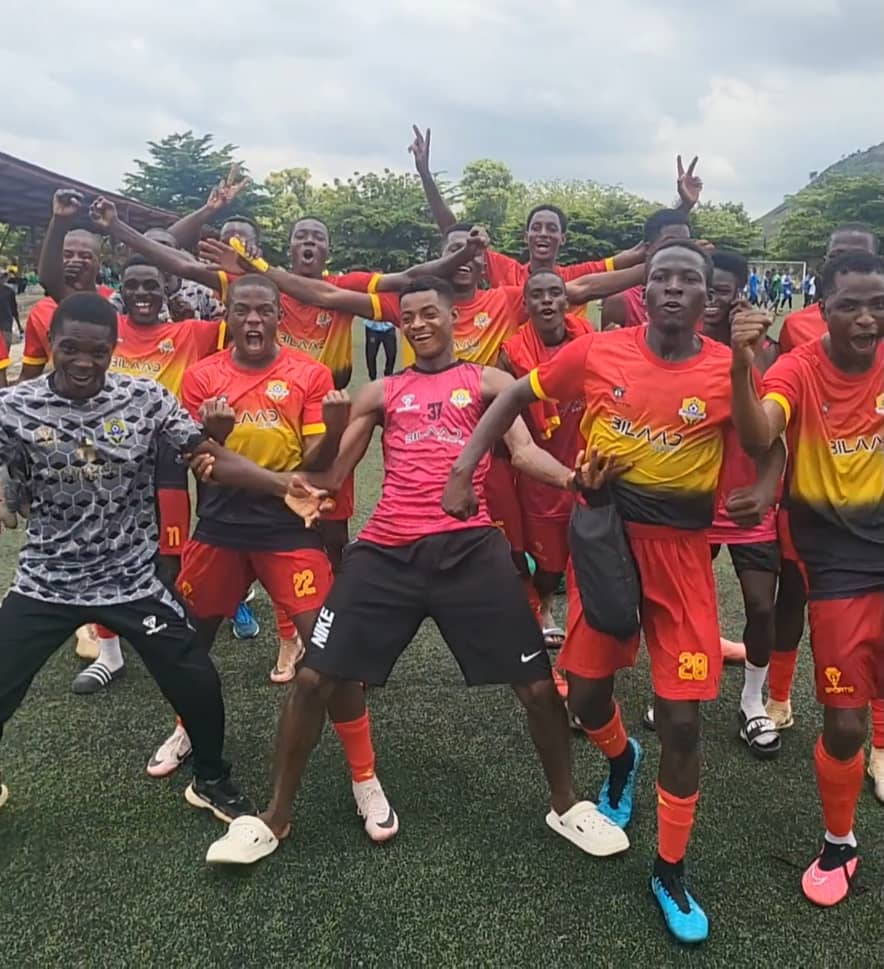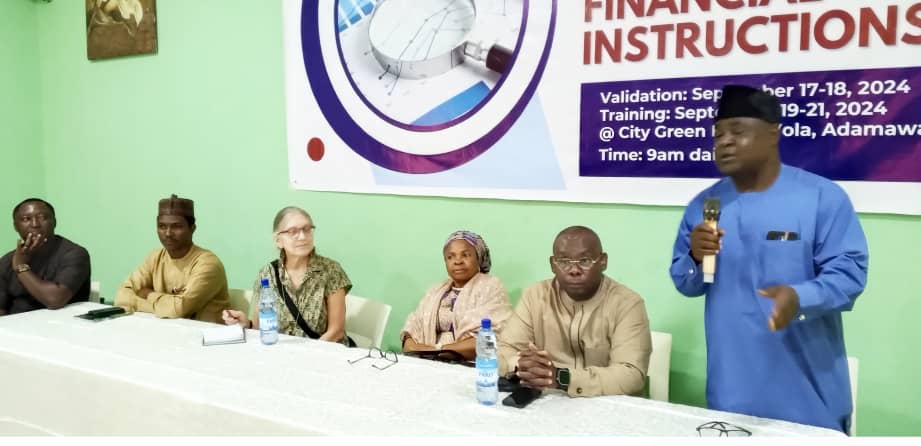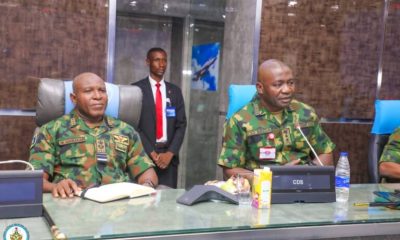News
WFP to provide emergency food, nutrition to 2.1m people affected by conflict

WFP to provide emergency food, nutrition to 2.1m people affected by conflict
The United Nations World Food Programme (WFP) says it will provide emergency food and nutrition to 2.1 million people affected by conflict and in dire need of humanitarian assistance.
This is contained in a statement released on Saturday in Abuja by Chi Lael, Head of Communications, Advicacy and Marketing of the programme in Nigeria.
Chi expressed the programme’s concern that years of armed conflict in northeast Nigeria had contributed to hunger and malnutrition among people with millions in need of life-saving assistance and so much at risk of famine.
RELATED STORY :Tinubu’s administration will give priority to gender-based issues Shettima
“The March Cadre Harmonise projects that 4.3 million people in Borno, Adamawa, and Yobe states face severe hunger during the peak of the lean season between June and August 2023.
“Almost 600,000 are on the brink of catastrophe. These people will face emergency levels of food insecurity with extremely high rates of acute malnutrition and mortality in the absence of sustained scale-up of humanitarian assistance.
“Ongoing conflict has affected the nutrition status of children on several fronts.
“Two million children in the region are projected to suffer from acute malnutrition, and cases of severe acute malnutrition among children have quadrupled to 700,000.
“More than 4.3 million people also in need of food assistance in northwest Nigeria, resources for the northeast, have been increasingly squeezed.
“A total of 24.8 million people or 1 out of 8 individuals are experiencing acute hunger this year in Nigeria’s 26 states and the capital, Abuja,” he said.
Chi explained that the more people in need of urgent food assistance go unassisted, the greater risk of starvation and death among the most vulnerable, and that the more people would be forced to resort to coping mechanisms such as survival sex, selling possessions and child labour.
He added that lack of assistance increased the risk of youth recruitment into armed groups and displaced populations that returned to inaccessible areas, where they were beyond reach of humanitarian assistance and other social services.
“Chronic insecurity is preventing many people in the north-east from growing the food they need or earning an income.
“In the last year, conflict left households unable to leave their homes due to an increase in movement restrictions, killings and abduction of civilians, particularly in Borno, where the violence is concentrated.
“Thousands of people are left with only one month’s food supply as households in conflict-affected areas rely on minimal income to purchase food.
“The hunger crisis worsens already bad situation for many families struggling with economic hardship, surging inflation, impacts of Russia-Ukraine war, the currency redesign policy, slow post-COVID-19 recovery and unprecedented floods in 2022, which limited agricultural production and overall food availability.
“WFP requires U.S. 190 dollars million over the next six months to provide life-saving food and nutrition assistance to the most vulnerable people,” he said.
He, however, advised that If urgent action was not taken, funding gaps could mean that approximately four million people in the northeast would be without food assistance at the peak of the lean season.
WFP is the world’s largest humanitarian organisation, saving lives in emergencies and using food assistance to build pathway to peace, stability and prosperity for people recovering from conflict, disasters and the impact of climate change.
WFP to provide emergency food, nutrition to 2.1m people affected by conflict
News
WAFU Qualifiers: Mailantarki Care FC beat Nigeria’s Flying Eagles 1-0

WAFU Qualifiers: Mailantarki Care FC beat Nigeria’s Flying Eagles 1-0
Nigeria’s Flying Eagles …
The Nigeria National team U-20 (Flying Eagles) suffered a defeat in the hands of Mailantarki Care FC in one of its series of preparatory games on Wednesday in Abuja.
The reigning Champions of the 2024 International Youth Championship in Denmark (Dana Cup) produced an all-around performance against the Nigeria National team outfit, the Flying Eagles at the FIFA Goal Project pitch of the MKO Abiola Stadium.
Coach Aliyu Zubairu’s U-20 team began preparation last week ahead of the upcoming WAFU Championship scheduled in Togo, where the representatives of the zone in the 2025 U-20 nations cup will emerge.
Sensational wing wizard Miko Dalha scored the only goal of the game following a delightful footwork before smashing into the near post before the break.
The host could have equalized from the spot deep into the game just for Mailantarki goalie Abbati Muhammed to punch away the penalty kick. However, the Flying Eagles defeated Water FC 1-nil in its first game courtesy of Bayelsa United forward Rabiu Abdullahi.
News
USAID Urges Adamawa Officials to Sustain State2State Interventions and Reforms

USAID Urges Adamawa Officials to Sustain State2State Interventions and Reforms
The United States Agency for International Development (USAID) has called on Adamawa State officials to continue supporting various interventions and reforms to foster sustainable development across key sectors. The call was made during a review of Adamawa’s financial instructions held in Yola on Wednesday.
Aduku Godwin, the Regional Advisor for USAID’s Learning to Read Project, emphasized the importance of maintaining these reforms to drive long-term progress in areas such as governance, education, and infrastructure development. He affirmed USAID’s commitment to collaborating with the State2State team in Adamawa to enhance good governance and ensure quality education in the state.
Machill Maxwell, USAID Project Management Specialist for Integrated Governance, commended the improvements seen in Adamawa’s health, education, and Water, Sanitation, and Hygiene (WASH) sectors. He stressed the need for efficient and accountable use of resources, pointing out that past inefficiencies had limited the impact of significant financial investments.
Hajiya Nafisa Ado, Senior Technical Assistant and Learning Advisor for the Learn to Read Project, expressed satisfaction with the partnership aimed at building the capacity of state officials to promote transparency, accountability, and effectiveness in governance and education.
Similar collaborative efforts are also underway in Bauchi, Gombe, Ebonyi, and Sokoto States as part of USAID’s broader initiative to support state-level reforms in
News
Jos DisCo urges Gombe customers to reciprocate improved power supply

Jos DisCo urges Gombe customers to reciprocate improved power supply
The Jos Electricity Distribution Plc (JED), on Wednesday, appealed to its customers in Gombe State to pay their electricity bills as a way of reciprocating the improved power supply in the state and its franchise.
Mr Abdu Mohammed, the managing director of JED, made the call while speaking at a customer consultative forum held in Gombe.
Mohammed decried the non-payment of electricity bills by consumers in the state, noting that the attitude of energy users in that regard was posing a big challenge to the company.
Represented by Mr Yerima Baba, the manager of Doma regional office, Mr Mohammed said the customers had a duty to pay for services that they have enjoyed.
According to him, this will enable JED sustain the improvement towards guaranteeing customers’ satisfaction across its franchise.
He stated that in the month of August, the energy bill for the state was N1.3 billion and only about 15.4 per cent of the total bills charged had been paid by customers.
“The electricity business is changing gradually and drastically. It is well known that Jos electricity is giving out the total volume of energy.
“There are feeders we give up to 100 per cent energy; this means that if translated to money, our monthly energy increases as well as the bill.
“But unfortunately, the response from the customers is appalling, so bad that if it continues like that, it would be difficult to sustain the business.
“We are consuming the total energy that is worth over N2 billion yet, the income generated from the two regions in Gombe State as at Tuesday September 17 is less than N200 million.
“We were billed over N1.3 billion for the month of August for the whole of Gombe and Doma,” he said.
Mohammed said there was high level of apathy in terms of payment of electricity bills, lamenting that people were paying just what they like.
“We are calling on customers to reciprocate now that energy is stable and availability is increasing; we are out to serve you please help us to serve you better,” he said.
Mohammed also decried the high rate of energy theft and vandalism which he said was affecting the company.
Also speaking, Mr Saad Abubakar, the manager of Gombe regional office said JED was working to improve on its metering, adding that improvements and customers’ satisfaction remained a critical component of the organisation.
Abubakar commended the customers for turning out to engage with JED on how to improve service delivery while assuring them that all genuine concerns raised would be addressed.
Our correspondent reports that customers during the engagement lauded JED for improved power supply in the state.
-

 Health5 months ago
Health5 months agoOnly 58,000 doctors renewed licence out of 130,000 registered doctors – MDCN
-

 Business1 year ago
Business1 year agoNew Rates: ‘I borrowed money to finance this business…’ – Petroleum Marketer cries out over Non-supply of products by the NNPCL
-

 Entertainment2 months ago
Entertainment2 months agoBBNaija Season 9: TAMI Duo Evicted After Low Vote Count
-

 Defence & Security1 month ago
Defence & Security1 month agoOrganisers Demand IGP’s Dismissal Over Fatal Protest Crackdown
-

 Defence & Security1 month ago
Defence & Security1 month ago“Defence Chief Praises Strong Inter-Service Cooperation for Operational Successes”
-

 Business2 years ago
Business2 years agoNew Naira Notes: We Have No Information On The Supreme Court Ruling – CBN
-

 Weather2 months ago
Weather2 months agoNiMet Forecasts 3 Days Thunderstorms, Rain Nationwide
-

 Opinion2 years ago
Opinion2 years agoAddressing Nigeria’s food security challenge through eco-friendly agriculture


